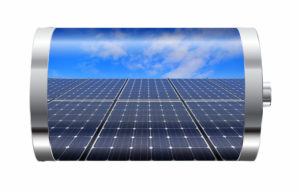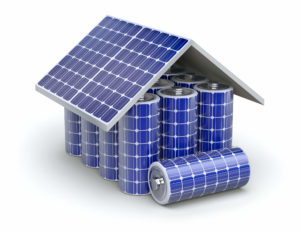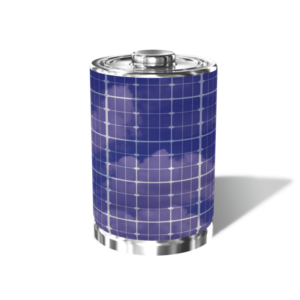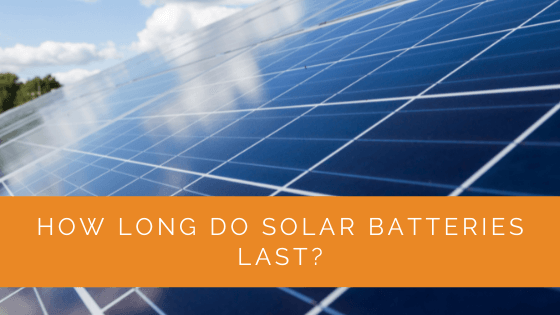Understanding the longevity and effectiveness of solar batteries is crucial for anyone considering a shift toward sustainable energy. Solar batteries, pivotal in harnessing and storing solar energy, are increasingly becoming popular for those looking to reduce their carbon footprint and electricity bills. But how long do these innovative storage solutions last? This article delves into the intricate world of solar batteries, exploring their lifespan, the factors influencing their durability, and essential considerations before purchasing. Whether you’re a homeowner eyeing energy independence or a business seeking sustainable solutions, this comprehensive guide offers invaluable insights into maximizing your solar battery investment.
Contents
- 1 What Are Solar Batteries?
- 2 What Should You Consider Before Buying a Solar Battery?
- 3 Factors that Affect the Lifespan of The Solar Battery
- 4 How to Store Your Battery?
- 5 What Is the Life Span of Solar Batteries in General?
- 6 Case Study: Residential Solar Battery Installation
- 7 Expert Insights From Our Solar Panel Installers About Solar Battery Longevity and Effectiveness
- 8 Experience Solar Excellence with Us!
- 9 Summing Up
What Are Solar Batteries?
Solar batteries are usually lithium-ion batteries that store solar energy captured by photovoltaic panels.
The panels in the system collect solar energy and convert it to electricity, which is then sent to your home via the inverter.
A solar battery is a lithium-ion battery that stores energy from solar panels while the sunlight is abundant. When there’s not enough sun to meet your power needs, these batteries can draw on this solar battery storage, preventing a dip in electric grid demand and blackouts.
They typically have a larger capacity than their counterparts.
In short, these batteries can be used to store electricity as off-grid energy systems, or while there is no electricity available, or when the user demands surplus electricity during periods of high demand.
They can often be stacked like a modular battery system or used individually in series with other cells.

What Should You Consider Before Buying a Solar Battery?
There are a few things that you should consider before buying solar lithium-ion batteries. These factors will help you in buying wisely. Here are a few important factors that you must consider-
Size of Your PV System
Depending on your size, the number of batteries needed, and the wattage output from your solar panels will vary. You should also factor in additional utility bills since a solar battery can reduce your use of energy during peak hours so it may be an added expense on the household budget.
Budget
You also have to consider your budget. Before buying a battery for your solar system, estimate how many panels you need and how big they are. The more batteries you need, the higher the cost will be so this is something to take into consideration before buying versus waiting until later down the line when electricity rates increase or you start experiencing outages often.
Battery warranty
Most of the batteries come with at least 10 years of warranty. You must check and buy the one that has the most amazing offer in terms of the warranty.
Depth of discharge
The depth of discharge tells a battery’s usability in relation to its entire capacity.
Hence, if a battery has a 100% DoD, it indicates you may use the entire battery storage capacity (for example, 2.5kWh) to power your home. Most solar batteries have varying DoDs, hence it is best to check it beforehand.
Power Capacity
Power capacity or battery capacity is the total amount of electricity that the battery can store or in simple words, the energy storage capacity of the battery. You will have to consider the energy production and energy usage before deciding the power capacity you want.
Factors that Affect the Lifespan of The Solar Battery
There are a few factors that do affect how long do solar batteries work. It is important to understand these factors if you want to increase the life expectancy of your home solar battery units.
Here are a few factors that affect the life expectancy of solar batteries, have a look-
Environment
The first factor that affects the battery lifespan is the environment in which it’s being used. The higher the sun radiation and humidity, the quicker solar batteries will wear out.
Temperature
The temperature also affects this – colder environments cause the chemistry inside to accelerate, so if you live somewhere with cold winters, expect your solar battery to stop working sooner than you might have expected.

External Disturbances
Exposure to vibration, shock, and any damage to the outer casing is also a very important factor.
Type of Solar Storage Battery
The battery types used in your solar systems will also affect the battery life. It is so because different types of batteries have varying chemical compositions.
The most common types of excess energy storage batteries are-
Lead-acid battery- Lead-acid batteries don’t have a long lifespan in comparison to lithium-ion batteries. Moreover, they are the most affordable options on the market.
Lithium-ion battery- Lithium-ion batteries are smaller, lighter, and more compact than lead-acid batteries, with a longer lifespan and better DoD.
Saltwater battery- Saltwater batteries contain saltwater electrolytes. It is a new technology as compared to the previous two and is environmentally friendly because it is easily recyclable. However, these batteries don’t perform as good as lithium-ion batteries.
Solar battery usage
The cycle life of the battery refers to the maximum number of times a battery can be fully charged and discharged to a certain discharge level. The usage cycles of the solar batteries also affect the useful life or the life of the battery.
Maintenance
Proper maintenance of the battery is yet another factor that affects the life of your battery backup system.
If you do not pay close attention to the maintenance your battery will wear down sooner.
Energy throughput
The overall quantity of energy that passes through your battery, regardless of the number of cycles or the level of discharge, is referred to as energy throughout. It affects the battery life that is why many solar battery warranties also impose a limit on the amount of energy that can be transferred.
Warrantied life
If your seller has given you a warranty period, then you can almost be sure that the battery won’t last beyond that period.
How to Store Your Battery?
The battery stays healthy only when you create optimal conditions for it.
One of the main elements regarding optimal conditions for making solar batteries last long and well is to maintain them in a cool, protected environment. Indoor use is ideal in order to keep the batteries cool. This will help the accumulation of power and decrease degradation, maximizing the lifespan of a solar battery in the process.
What Is the Life Span of Solar Batteries in General?
The general period or the life expectancy of most solar batteries is 5-15 years.
As mentioned earlier, there are a lot of factors like power rating, system size, DoD, etc, that affect the life of your solar battery today. However, you can expect it to last for the above mentioned period of time. If it lasts more than that then give yourself a pat on your back!

Case Study: Residential Solar Battery Installation
Background
At Solar Panels Network USA, our mission is to provide tailored solar solutions that meet the specific needs of our clients. One of our recent projects involved a residential installation in Burlington, Vermont. The homeowners were committed to reducing their carbon footprint and sought a reliable solar battery system to enhance their energy independence.
Project Overview
The goal of this project was to install a solar panel system equipped with efficient solar batteries to store excess energy. This system needed to be robust enough to handle the varying weather conditions in Vermont, ensuring a reliable power supply throughout the year.
Implementation
We began with a thorough site assessment to determine the optimal placement for the solar panels and batteries. The roof’s orientation and available space were analyzed to maximize sunlight exposure. We opted for high-efficiency lithium-ion batteries due to their superior lifespan and performance.
The installation process included setting up 20 high-efficiency solar panels and integrating them with a modular battery system. This setup ensured that the system could scale up if the homeowners decided to expand their energy needs in the future. The batteries were placed in a cool, insulated area to protect them from extreme temperatures, which is critical in Vermont’s climate.
Results
The installed system provided the homeowners with significant energy savings and reduced their reliance on the grid. The lithium-ion batteries, with their high depth of discharge (DoD), allowed the family to use stored energy during peak hours, further cutting down their electricity bills.
Real-time monitoring tools were installed, enabling the homeowners to track energy production and consumption. This transparency helped them optimize their energy use and identify potential savings. The batteries’ performance remained consistent, even during the colder months, thanks to the controlled environment we established for them.
Summary
Our project in Burlington, Vermont, demonstrates how tailored solar solutions can effectively meet residential energy needs. By focusing on key factors such as environment, battery type, and maintenance, we ensured that the homeowners could maximize their investment in solar energy. At Solar Panels Network USA, we continue to leverage our expertise to provide clients with reliable and efficient solar solutions that support sustainable living.
Expert Insights From Our Solar Panel Installers About Solar Battery Longevity and Effectiveness
As a seasoned installer, I can confirm that understanding the lifespan of solar batteries is essential for any solar energy investment. Lithium-ion batteries typically last between 5 to 15 years, influenced by factors like usage patterns and maintenance.
Senior Solar Installer
The environment plays a crucial role in the durability of solar batteries. Extreme temperatures, whether hot or cold, can significantly shorten battery life. Keeping your batteries in a stable, cool environment can maximize their longevity.
Lead Installation Technician
Maintenance and proper usage are key to extending the life of your solar batteries. Regular checks and keeping the battery at optimal conditions ensure that you get the most out of your investment in renewable energy.
Solar Energy Consultant
Experience Solar Excellence with Us!
Trust in Solar Panels Network USA, where our seasoned experts deliver top-quality solar solutions for homes and businesses nationwide. With a legacy of countless successful installations and a commitment to sustainable energy, we’re your reliable partner in the solar journey. Ready for a brighter, eco-friendly future? Call us now at (855) 427-0058 and harness the power of the sun!
Summing Up
Solar panels produce energy by converting the renewable energy of the sun into electricity. The energy produced by them proves to be very helpful when there is a power outage or extra home energy storage is required.
Solar panels help you get energy independence and be the master of your own needs. You will save a lot of money by the kilowatt-hours of energy produced by these panels. Hence, you can be sure that you are making a wise long-term investment.
However, you must not forget that without the battery the solar panels are quite useless. You must ensure that you buy the battery wisely.
Now that you know how to choose a battery, what are the factors that affect its life and how to store it properly, start with the eco-friendly way of living today!
About the Author
Solar Panels Network USA stands at the forefront of solar energy solutions, driven by a team of seasoned solar engineers and energy consultants. With over decades of experience in delivering high-quality solar installations and maintenance, we are committed to promoting sustainable energy through customer-centric, tailored solutions. Our articles reflect this commitment, crafted collaboratively by experts to provide accurate, up-to-date insights into solar technology, ensuring our readers are well-informed and empowered in their solar energy decisions.

